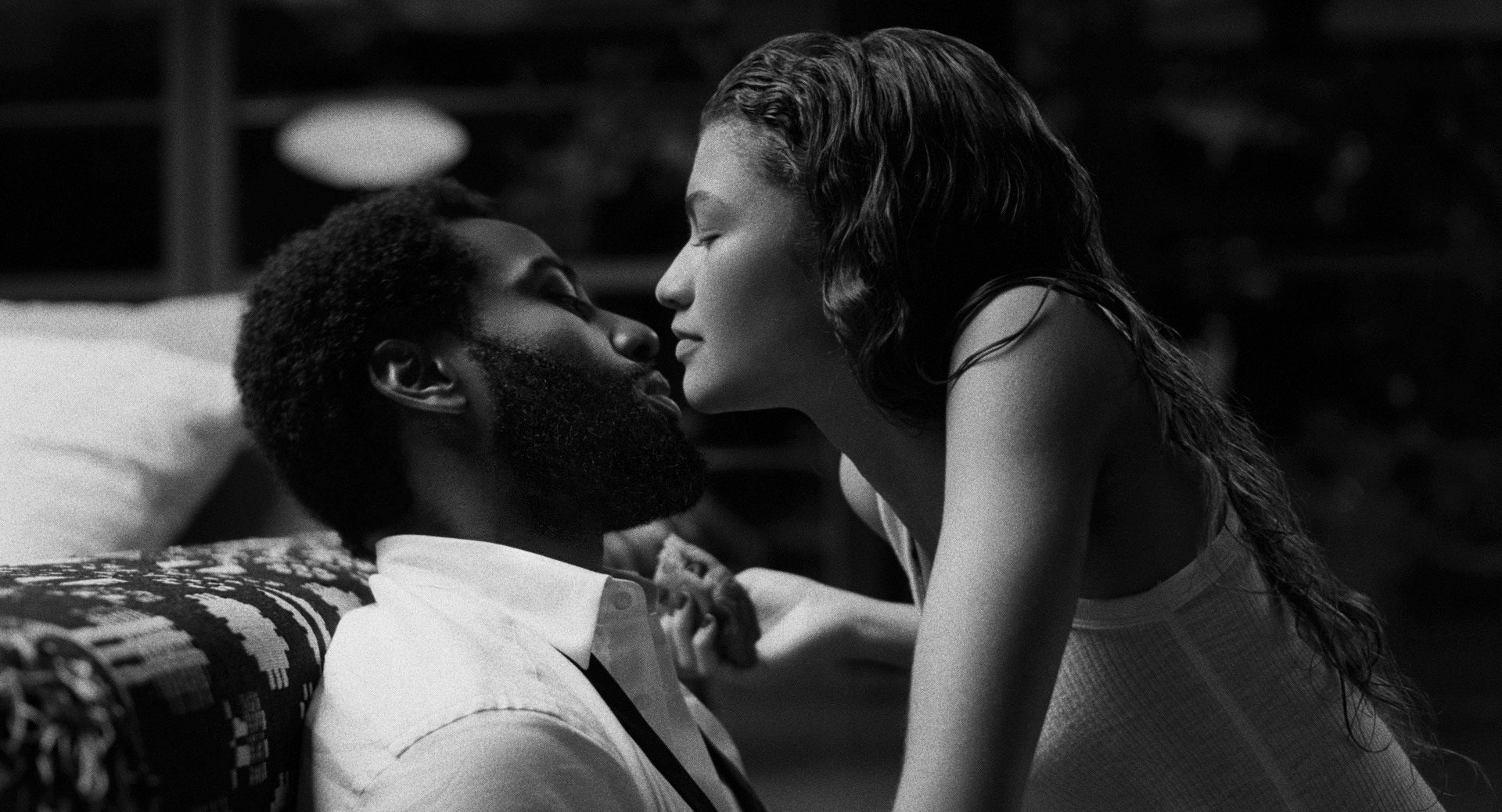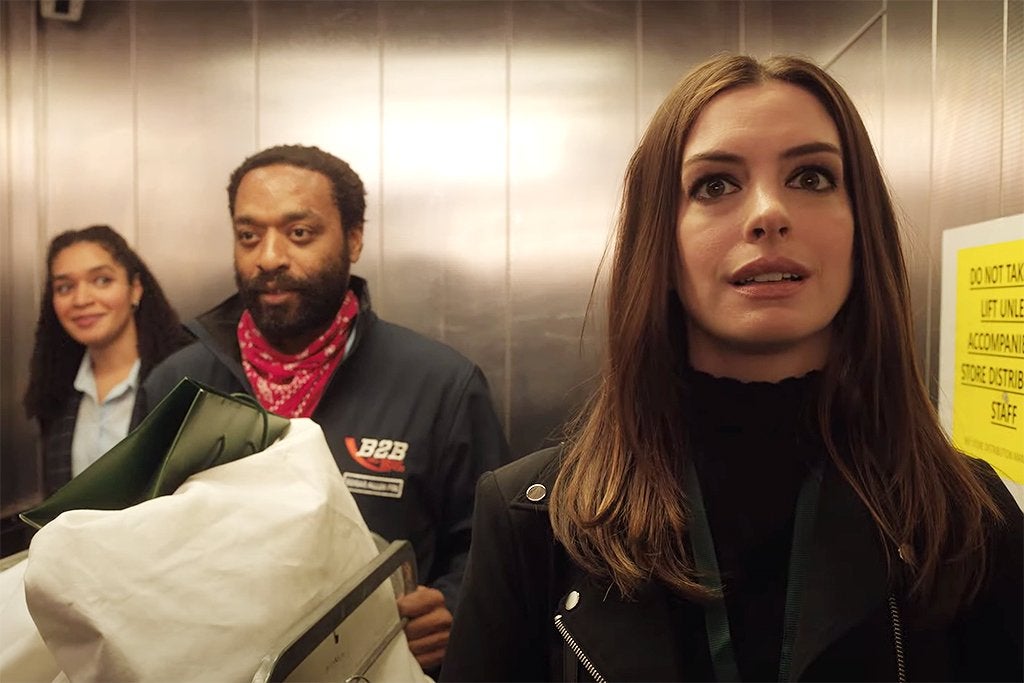Love in the time of Covid: The pandemic has created a new genre of intimate filmmaking that’s a little too close to home
From ‘Malcom & Marie’ to ‘Locked Down’, a long list of relationship dramas will hit screens in 2021. But could they risk worsening our collective cabin fever? Geoffrey Macnab thinks they just might

Do marriages and affairs wither during lockdown or are they able to blossom? How much enforced intimacy is good for couples and how do would-be lovers meet when they’re under virtual house arrest? These are questions that Covid-driven relationship dramas – the new genre of filmmaking that has emerged during the pandemic – will attempt to answer this year.
Big name directors who are more accustomed to overseeing epics have been busily shooting chamber pieces about warring spouses and bickering sweethearts. Before The Bourne Identity’s Doug Liman makes his Tom Cruise-starrer in outer space, the filmmaker will release the appropriately named and much more earthbound Locked Down, a claustrophobic London-set romcom/heist movie starring Anne Hathaway and Chiwetel Ejiofor. Scripted by Steven Knight of Peaky Blinders fame, this is about an unhappy couple who can’t separate because of Covid. They’re caught in “a psychological prison of burning aloneness”. Hatching a scheme to steal a priceless diamond from Harrods does wonders for their faltering marriage.
New Netflix movie Malcolm & Marie, out this week, is not actually set during the coronavirus crisis – but was made entirely because of it. Written and directed by Sam Levinson, starring Zendaya and John David Washington, it’s a caustic relationship drama, filmed in black and white and unfolding over a single night. The filmmakers financed it themselves and shot it last summer in a Covid-secure location: a luxurious house in Carmel, California.
Washington plays Malcolm, a film director. Zendaya is his girlfriend, Marie. They’ve just returned home after the premiere of his latest movie. It was well received but Malcolm is bristling at the critics who’ve wilfully misinterpreted his intentions. His egotism and insecurity rankle with Marie. The movie draws heavily on her life but he hasn’t acknowledged her contribution at all. The simmering tensions put a severe strain on their relationship.
Back in Europe, Oscar-nominated Dutch director Paula van der Oest has just completed her coronavirus romance, Love in a Bottle. This is about an affair conducted via FaceTime between a man locked down in London (James Krishna Floyd) and a Holland-based perfume maker (Hannah Hoekstra) he met just before the pandemic hit. Its director describes it as “a sexy and moving feature film about love in times of Covid”.
Altogether darker in tone is Polish-Dutch filmmaker Urszula Antoniak’s Covid drama Splendid Isolation, now in post-production and tipped for a place in the Cannes Film Festival later this summer. Its protagonists are two female lovers, autistic Hannah and her guardian Anne. They have had to stay apart since Hannah caught the virus. They’re in splendid isolation on a remote island but, as the film’s tag line grimly warns, “death follows them there”.
It is not just fiction filmmakers who’ve been reflecting so intently on love and relationships during the pandemic. Several documentaries on the subject have been made too. Pacho Velez’s new feature, Searchers, warmly received at the Sundance Festival last week, is about lonely hearts young and old in New York City last summer, using apps like Tinder or Match in search of romance, companionship and sex.
Meanwhile, large parts of Kevin Macdonald’s epic new YouTube documentary Life in a Day 2020 (which also premiered in Sundance) focus on relationships and amorous yearnings in a Covid-ravaged world. Macdonald includes footage of couples from all the over the globe, of every age, sexuality and background, kissing, toasting one another, having romantic chats online, proposing in scenic surroundings or getting married in masks at socially distanced weddings. One of the most poignant scenes shows a young Indian man who climbs up onto his roof every day to stare with longing at a woman on the terrace opposite. “She is pretty, about my age and I want to talk to her but I don’t know how because there is a pandemic going on and she never comes out of the house,” he laments. Every day he waves at her, looking more and more like a drowning man. Every day, she ignores him.

There are very obvious reasons behind the new wave of Covid relationship movies. These are to do with time, necessity and old fashioned birds and bees-style biological urges.
“You realise that romance, personal connections and intimacy are the first thing people look for. If they are being fed, they’re being sheltered, the next thing to worry about is love. That is where people’s minds were this summer,” director Pacho Velez told me when I asked why so many New Yorkers in his documentary Searchers (including Velez himself) were spending so much time swiping left and right on their dating apps. He shot most of the film during a respite from Covid, when the sun was shining and people were again able to go out into the city and socialise, albeit with their masks at the ready. The moment the lockdown ended, the documentary suggests, anyone who was single (and quite a few who weren’t) immediately started searching for a new partner.
For directors like Doug Liman and Sam Levinson, making new movies about couples in confined spaces is a way to keep working during the pandemic. Last summer, the usual circus of Hollywood filmmaking had ground to a sudden halt. There were now very stringent Covid protocols to observe before shooting was allowed. They realised that, no, they probably wouldn’t be able to stage a new version of the chariot race from Ben-Hur. However, filming alone in a room with Zendaya or Anne Hathaway would be just about permissible.
Audiences are likely to have mixed feelings about this new flurry of films. On the one hand, it’s exhilarating that filmmakers are using the pandemic as a pretext to explore new storytelling styles. Actors are stretching themselves. The best of the movies have a rawness and emotional intensity that you simply won’t find in a glitzy, big budget romcom. These are the equivalent of “unplugged” acoustic albums when major music stars perform in stripped down, intimate fashion. The downside is that the worst of them are overwrought and horribly self-conscious.

Malcolm & Marie showcases both the strengths and weaknesses of the lockdown drama. It begins in bravura fashion. John David Washington puts on a James Brown record and dances his way around the luxury apartment in a single, gliding take, shot from outside the apartment. He’s exulting in the success of his movie. There is energy, dynamism and movement… but then the talking begins in earnest. It doesn’t stop.
Levinson’s dialogue is very sharply written but there’s an awful a lot of it. The excellence of the two lead performances notwithstanding, the film risks becoming a drag. Spectators are forced to eavesdrop on the bickering of the two gilded, narcissistic Hollywood insiders as they shout and swear at each other across the house.
You can see ambitious filmmakers during the pandemic drawing on everything from John Cassavetes’s intensely focused psycho-dramas and Ingmar Bergman’s excoriating studies of feuding couples, to Elizabeth Taylor and Richard Burton in their pomp in Mike Nichols’s Who’s Afraid of Virginia Woolf? In his 1944 play Huis Clos (No Exit), French playwright and philosopher Jean-Paul Sartre came up with the idea of characters condemned to be stuck in a room together for all eternity. That’s similar to what is happening in the lockdown films.
While we can’t blame filmmakers for focusing on relationships – one of the few subject matters available at this time – we may end up yearning for some action and plot development in their movies. If only the protagonists would get out of the house, anything to stop their relentless scrutiny of themselves. Lockdown dramas can be done quickly and affordably, with small crews and tiny casts. The question, though, is: how long will audiences confined to their own homes tolerate movies about characters stuck in exactly the same predicament before cabin fever kicks in?
‘Malcolm & Marie’ premieres on Netflix on 5 February. ‘Locked Down’ is released on 5 March
Join our commenting forum
Join thought-provoking conversations, follow other Independent readers and see their replies
Comments